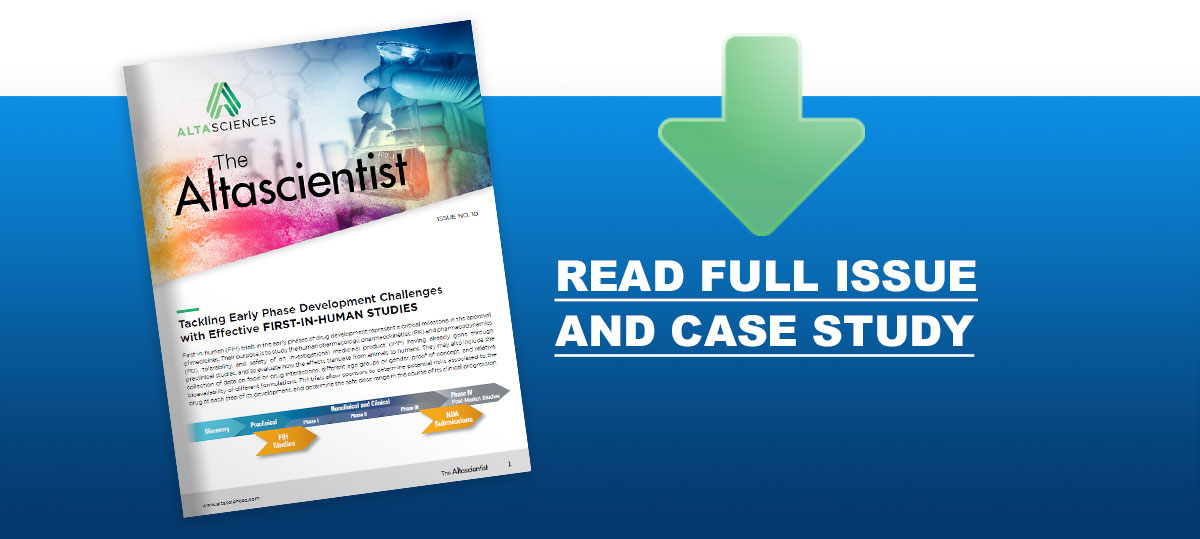Footer
-
-
Study Types
- Preclinical
- Lead Optimization
- Pharmacology
- Pharmacokinetics/Pharmacodynamics
- Acute Toxicology
- Dose Range Finding/Maximum Tolerated Dose
- Repeated Dose Toxicity
- Safety Pharmacology
- Sub-Chronic/Chronic, Repeated Dose Toxicity
- Clinical
- First in Human
- Proof of Concept
- Bioavailability/Bioequivalence
- Pharmacokinetics in Special Populations
- Human Abuse Potential
- Driving Simulation
- Drug-Drug Interaction
- QT Assessment
- Renal and Hepatic Impaired
- Imaging
- Biologics/Biosimilars
- Cannabis
-
-
-
About us
-
Careers
-
Contact Us
-
Locations
-
Stay connected
-
2025 © Altasciences. All Rights Reserved.
I'd be happy to help.

